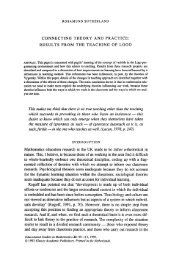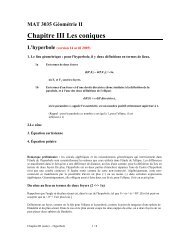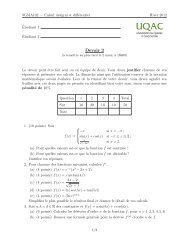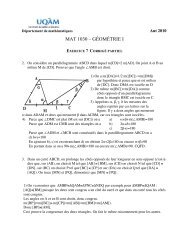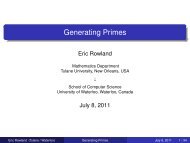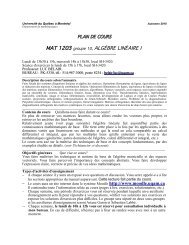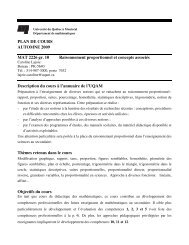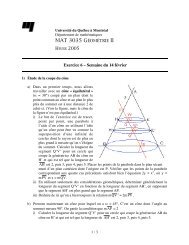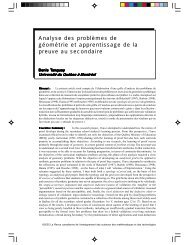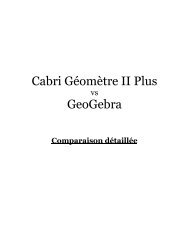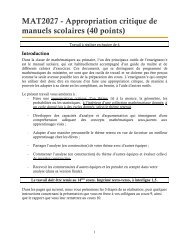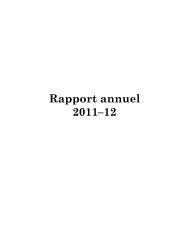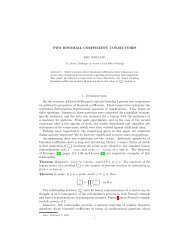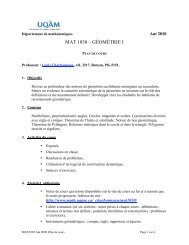COMPLEX GEOMETRY Course notes
COMPLEX GEOMETRY Course notes
COMPLEX GEOMETRY Course notes
You also want an ePaper? Increase the reach of your titles
YUMPU automatically turns print PDFs into web optimized ePapers that Google loves.
2.14 Review<br />
Theorem 2.14.1 (Orthogonal decomposition). For every ω ∈ A 1 = space of differntial 1-forms, there exists<br />
a unique decomposition<br />
ω = ω h + df + ∗dg<br />
where ω h is a bounded harmonic, f, g ∈ A 0 = space of smooth functions.<br />
We denote A = the space of C ∞ -functions.<br />
Proof: Let H be the space of harmonic differentials. Then H is orthogonal to both E = dA 0 and<br />
∗E = ∗dA 0 . This fact follows easily using the L 2 -inner product and the equality ∗∗ = (−1) k , for<br />
Riemann surfaces one has (−1) k = 1. We have<br />
H⊥E⊥ ∗ E ⊆ A 1 .<br />
Taking completion, we have<br />
Ȟ⊥○Ě ⊕ ∗Ě = A1<br />
where Ȟ⊥○Ě is the orthogonal (Ȟ ⊥ Ě) direct sum of Ȟ and Ě. By the Weyl’s Lemma, we have H = Ȟ.<br />
Lemma 2.14.1. Any distribution (1-form) T (1-current) with ∆T = 0 is the distribution of some differential<br />
function f, i.e., T = T f where<br />
∫<br />
T f [h] = hf<br />
and h is compactly supported in U ⊂⊂ Z, where Z is a Riemann surface.<br />
U<br />
Corollary 2.14.1 (Hodge decomposition). HdR 1 (Z) = Ω ⊕ Ω = H.<br />
36



